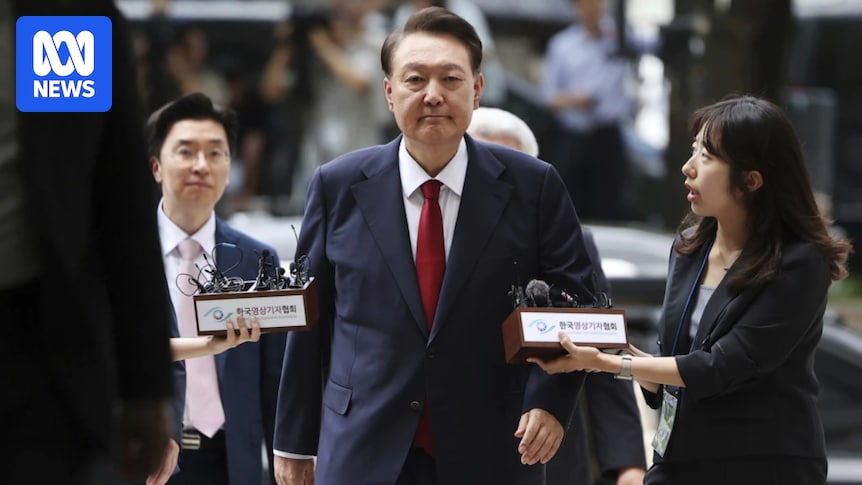South Korea's jailed former president, Yoon Suk Yeol, again refuses to attend questioning by investigators, using a new method to resist — taking off his prison uniform and laying down on the floor at his detention room.
Why it matters
- The refusal of a high-profile political figure to cooperate with investigators raises questions about accountability in South Korea.
- Yoon Suk Yeol's actions may signify a growing trend of political defiance amidst ongoing legal struggles.
- This incident highlights the complex intersection of law, politics, and public perception in South Korea's judicial system.
In a striking demonstration of defiance, Yoon Suk Yeol, the former president of South Korea currently incarcerated, has once again declined to engage with investigators. This time, however, he has employed an unusual tactic: removing his prison uniform and lying down on the floor of his detention cell. This act of protest is seen as a rejection of the ongoing questioning related to various allegations against him, including corruption and abuse of power.
Yoon's refusal to cooperate with the legal proceedings represents a significant moment in South Korea's political landscape. As a former leader, his actions not only draw public attention but also provoke discussions about the integrity of the judicial process and the responsibilities of public officials when faced with legal challenges.
The former president has faced a series of allegations since leaving office, including charges of corruption and misconduct during his administration. These accusations are part of a broader trend in South Korea where former leaders have often found themselves embroiled in legal troubles after their terms end. Yoon’s current predicament is reflective of a political culture that is increasingly scrutinizing the actions of those in power.
Despite the serious nature of the investigations, Yoon continues to assert his innocence, using his time in prison to rally support among his followers. His recent actions, which include refusing to wear the prison uniform, might be interpreted as an attempt to project an image of resistance against what he describes as politically motivated persecution. Observers note that such gestures can resonate with certain segments of the population, potentially influencing public opinion and political dynamics.
In South Korea, the legal system's relationship with political figures is complex and often contentious. The country's history is marked by instances where leaders have faced prosecution after their presidency, raising questions about the balance of power and the rule of law. In Yoon's case, his refusal to participate in the questioning process not only complicates the investigation but also risks further polarizing an already divided public.
Legal experts suggest that Yoon's actions could have implications for the ongoing investigation. His refusal to cooperate may delay the legal process and could lead to additional charges or sanctions against him for obstructing justice. Furthermore, the spectacle of a former president lying down in protest could captivate the media and public, overshadowing the serious nature of the allegations against him.
The political ramifications of Yoon's behavior are substantial. His supporters view him as a martyr of political injustice, while his detractors see his actions as indicative of a lack of accountability for powerful officials. This situation could lead to increased polarization within South Korean society, as individuals align themselves with either Yoon's narrative of victimization or the prosecution's attempts to uphold the rule of law.
As the investigation continues, it remains to be seen how Yoon's actions will affect the legal proceedings and the broader political climate in South Korea. His refusal to comply with the questioning could serve as a rallying point for his supporters, while simultaneously challenging the authority of the judicial system. The outcome of this case could set a precedent for how future political figures are treated within the legal framework, influencing public trust in institutions.
In summary, Yoon Suk Yeol's protest against the legal questioning process raises critical questions about political accountability, the integrity of South Korea's judicial system, and the public's perception of justice. As the story unfolds, it will likely continue to capture the attention of both the media and the public, highlighting the ongoing struggles between power, politics, and the rule of law in the country.











